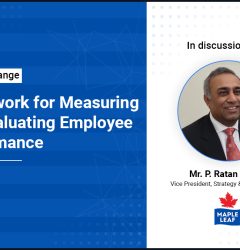18 Oct

Learn how PossibleWorks can help you
How to manage OKRs in your startup?
Google’s OKR may work only for Google and not for a smaller startup. Hence, the first thing to do is to not look for ‘inspiration’ and end up imitating the objectives and key results of other brands. Define your own OKRs and work on them. That is the best way to make full use of this amazing tool. The idea is to stick to the principles of OKRs and not to pick up other firm’s OKRs.
Now, here are some common factors that OKRs of startups, SMEs, and multinationals need to have. Use this as a base to build your own.
- Ability to quantitatively track results – Qualitative results are good, however, quantitative ones are the most effective as they are objective, fact based and data driven. Any OKRs you create need to have quantitative aspects of tracking results and this is the most important feature to keep in mind. To put it differently your OKRs should be specific, measurables, ambitious, relevant and time bound.
- Focusing on the priorities and nothing but the priorities – There are a million things you can think of as objectives for the team and the organization. However, there can be only a limited number of objectives at a time. Therefore, pick only what is the priority right now and would likely to create maximum impact today.
- Having a limited number of OKRs at a time – Having multiple OKRs at the same time is going to dilute the importance of the goals. Imagine having to achieve tens of key results at the same time! Always have limited objectives that are a priority for the organization to ensure you are focused and working on things that really matter.
- Ensuring the team is in line with the objectives and key results – You may have spent money and time creating exceptional OKRs. However, does your team align and believe in them? Make sure that the team understands then and has aligned their own goals to the organization’s priorities. That’s the only way these OKRs will work.
How OKRs can help you grow your team?
There are many ways OKRs can help you grow your own startup with ease.
Help with rapid growth
Sometimes, startups want a quick burst of energy to grow from one level to another. Such rapid growth is easily possible with OKRs. Experts suggest that you have shorter periods for specific goals (4 weeks) and concentrate on achieving them. Achieving 2-3 such vital goals in a span of 2-3 months will be a tremendous success for you and your team.
Facilitate quick change
Startups usually consist of a small group of people equally vested in the growth of the firm. In a space like this, creating a change can be quite challenging. You can facilitate quicker change in skill sets, thought processes, processes by letting each individual own their OKRs instead of a team owning them. This also ensures objective accountability as to who is responsible for what.
Focus on current organizational goals
What is your current organizational goal? It could be anything from increasing sales, increasing online presence, to widening your customer base. By setting individual OKRs to match the organizational goal, it is easy for everyone in the startup to work towards those goals. This will reduce the time in which you achieve the goal. A startup that takes longer strides in reaching its goal grows faster and gets more successful.
Identify your priorities and pass the information along
All organizations need to have priorities at that specific point in time. These priorities may change with time but at that moment, they should be your number one focus. The top management usually has a clear idea of the priorities. However, the information does not reach those who actually work in realizing these. OKRs can help this information reach all levels by creating an easy-to-understand objectives list.
Align organizational and individual goals
This is probably one of the most vital benefits of OKRs for startups and all other types of organizations. When the organizational goal and individual/team goals don’t align, it is like two horses pulling one carriage in opposite directions. There will be nil movement. OKRs not only help align these goals but also create a space to monitor the key results and point out when there is a lag or a misalignment anywhere.

When do you need OKRs and why?
- If you have problems making goals or following them through, then OKRs are for you. This is one of the most effective goal-setting frameworks used right now.
- If you want to review your current goal-setting process or don’t find it effective, then OKRs are for you. You can create a drastic shift in how your team views and approaches goals, thanks to OKR.
- If you think you and your teams are moving in different directions, then OKRs are for you. This helps align goals so they match.
- If your goals are set perfectly but your team has a problem in achieving them, then the key results help them understand what exactly is to be done to reach the goals.
- If you want to open up vertical and horizontal communication at the workplace, then OKRs are for you. This framework encourages open and frequent communication.

OKR management: Setting up and tracking OKRs
PossibleWorks brings you a simple, straightforward, and very effective OKR platform that you can customize as per your requirements. Our platform focuses on three factors.
- Setting priorities, making processes more transparent, and aligning goals
- Helping create agile goals (What to achieve) with weekly initiatives (How to achieve) that help reach the goals quicker
- Opening up the organization for continuous feedback, timely course correctionand frequent check-ins
The platform makes it easy to continuously track company goals Vs individual and team goals and can spot misalignments and rate of progress easily.
Such a system does not leave you hanging after setting objectives and key results but helps draw initiatives or action points that give clear visibility of success, forecasts success rate, and make it easy to achieve the key results.
Conclusion
You might be surprised at how OKRs can help your startup grow
Most startups are in a constant state of chaos and change and this keeps pulling them back, preventing them from achieving all that they dream of. An OKR framework is a perfect way of identifying priorities, plotting action points, and achieving goals step by step, in a logical and fuss-free manner.
If Google, as a startup, found value in OKRs and continues to use them, you will also find a sweet spot with this framework.
Get in touch with us to know how your startup can benefit from OKRs.



